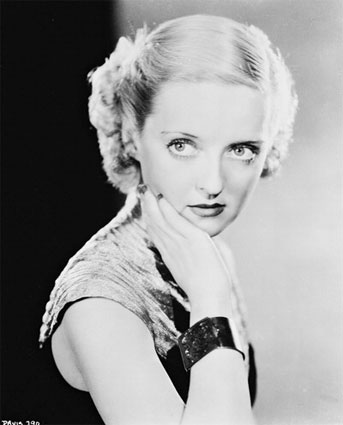Lovers, mothers, and other signs trouble
Volver at the Curzon Soho, 6th September 2006.
Ok, so Pedro Almodovar loves woman, that’s clear. Worships them in fact. No greater proof of this is needed than his latest, arguably best film, Volver; which stars a very much enhanced (larger in every way) Penelope Cruz, playing the part of Raimunda with a blowsy, Bet Lynch type joie de vivre. Following in the footsteps of luminaries such as Joan Crawford and another Bette, this time Davis, she bestrides the small town Spanish arena of the film, like a colossus, surviving the worst of calamities including a murderous teenage daughter (arguably self-defence), a lascivious husband and father, and the apparently supernatural reappearance of her long-dead mother. It’s enough to drive the average person crazy.
In addition to the statuesque Penelope (jokes are made continuously about the size of her bosoms, e.g. ‘Have you always had those bosoms? Are you sure you haven’t had a little something done?), the film also stars the brilliant Carmen Maura, a survivor of earlier Almodovar films such as GSG favourite, Woman on the Verge of a Nervous Breakdown, who plays the prodigal mother turned wise old crone/banshee, who appears dramatically to a superstitious village in La Mancha (Almodovar’s home town) after the death of her sister Paula, and who seems to have come back from the afterlife in order to mend some broken relationships that she left unresolved during her eventful lifetime.
Loneliness. Sexual violence. The supernatural. Almodovar knows how to handle all of it expertly. He has a knack of injecting humour into the darkest recesses of family and village life (for this read ‘global village’), and offers his characters, whether they be the teenage virgin-princess, the lonely spinster, or the town whore, an excess of compassion and understanding for their situation. Thus Raimunda’s closest friend in her apartment block is a prostitute whose earthy sense of humour and loyalty extends to even the grittiest of funerary labours.
It is in this that Almodovar’s vision becomes transparent as the community of women emerges triumphant. Women are the strongest social force out there; “We can manage by ourselves” is the last equivocal statement of the film, and it encapsulates one of the major themes of the movie. Women working together are the guiding influence that keeps families and wider communities together. Men are either absent, ineffectual or at the worst, predatory and vicious.
The World According to Almodovar is a female-centric universe (what is the opposite of phalli-centric?) and full of visual splendours (rapacious feasts; wine, cheese, pastries, etc.) which are in stark contrast to the aridness of the natural world. Life may suck sometimes, sexual relationships and misplaced romanticism inevitably let you down, but according to Almodovar's code, same-sex friendships and platonic love can be your salvation.
God bless Pedro Almodovar. Long may he reign.
Ok, so Pedro Almodovar loves woman, that’s clear. Worships them in fact. No greater proof of this is needed than his latest, arguably best film, Volver; which stars a very much enhanced (larger in every way) Penelope Cruz, playing the part of Raimunda with a blowsy, Bet Lynch type joie de vivre. Following in the footsteps of luminaries such as Joan Crawford and another Bette, this time Davis, she bestrides the small town Spanish arena of the film, like a colossus, surviving the worst of calamities including a murderous teenage daughter (arguably self-defence), a lascivious husband and father, and the apparently supernatural reappearance of her long-dead mother. It’s enough to drive the average person crazy.
In addition to the statuesque Penelope (jokes are made continuously about the size of her bosoms, e.g. ‘Have you always had those bosoms? Are you sure you haven’t had a little something done?), the film also stars the brilliant Carmen Maura, a survivor of earlier Almodovar films such as GSG favourite, Woman on the Verge of a Nervous Breakdown, who plays the prodigal mother turned wise old crone/banshee, who appears dramatically to a superstitious village in La Mancha (Almodovar’s home town) after the death of her sister Paula, and who seems to have come back from the afterlife in order to mend some broken relationships that she left unresolved during her eventful lifetime.
Loneliness. Sexual violence. The supernatural. Almodovar knows how to handle all of it expertly. He has a knack of injecting humour into the darkest recesses of family and village life (for this read ‘global village’), and offers his characters, whether they be the teenage virgin-princess, the lonely spinster, or the town whore, an excess of compassion and understanding for their situation. Thus Raimunda’s closest friend in her apartment block is a prostitute whose earthy sense of humour and loyalty extends to even the grittiest of funerary labours.
It is in this that Almodovar’s vision becomes transparent as the community of women emerges triumphant. Women are the strongest social force out there; “We can manage by ourselves” is the last equivocal statement of the film, and it encapsulates one of the major themes of the movie. Women working together are the guiding influence that keeps families and wider communities together. Men are either absent, ineffectual or at the worst, predatory and vicious.
The World According to Almodovar is a female-centric universe (what is the opposite of phalli-centric?) and full of visual splendours (rapacious feasts; wine, cheese, pastries, etc.) which are in stark contrast to the aridness of the natural world. Life may suck sometimes, sexual relationships and misplaced romanticism inevitably let you down, but according to Almodovar's code, same-sex friendships and platonic love can be your salvation.
God bless Pedro Almodovar. Long may he reign.


0 Comments:
Post a Comment
<< Home